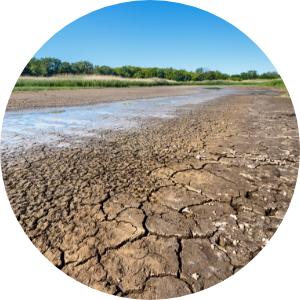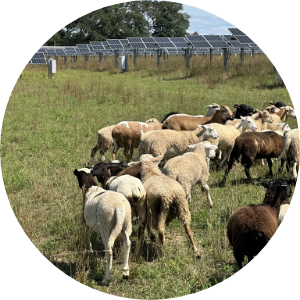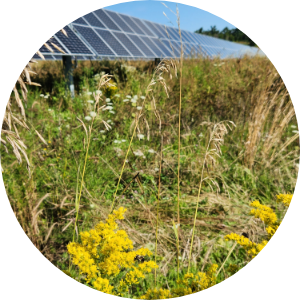Our Climate > Supporting Solar Energy > Farmers for Solar
Farmers for Solar
Wisconsin farmers play a critical role in the clean energy transition. Hosting solar offers farmers a reliable new revenue stream, restores land health and brings major economic benefits to the whole community.”
Jump to Section
Explore Our Approach
Overview
Solar Farms Help Power Progress
To reach net-zero by 2050, Wisconsin must build 1,000+ megawatts of solar each year. That requires a range of solar farm projects, especially in rural areas. Alongside rooftop solar and efficiency upgrades, large-scale solar is essential to meeting our climate goals.
Why Support Solar
How Solar Supports Wisconsin Agriculture
Beyond clean energy, solar farms offer lasting benefits for rural communities. Leasing land for solar provides farmers with reliable income, while native plantings around panels can support pollinators, reduce erosion, and improve soil health. It’s a climate solution that helps agriculture thrive—not just survive.

Financial Security for Family Farms
Solar leases offer long-term, drought-resistant income—helping farmers weather market swings, trade disruptions, and extreme weather. For many, it’s a lifeline to stay on the land.

Economic Boost for Rural Communities
Under Wisconsin law, solar farms over 50 MW generate $5,000 per megawatt each year for local governments. A 300 MW project can bring in $1.5 million annually—funding roads, emergency services, and more.

A Smarter Use of Farmland
Wisconsin currently devotes over a million acres to growing corn for ethanol. Solar generates 100 times more energy per acre than corn grown for ethanol. Using just one-third of that land for solar could meet our clean energy needs and return land to food production.

Keeping Energy Dollars Local
Wisconsin spends $14 billion a year importing fossil fuels. Solar keeps energy investments in-state—supporting jobs, farms, and local businesses.

Healthier Land, Water, and Wildlife
Solar farms planted with native grasses and flowers regenerate soil, reduce runoff, and improve water quality. They also provide vital habitat for pollinators and other wildlife.
STAY INFORMED
Join the Fight for Our Climate
Sign Up For Email Updates
"*" indicates required fields